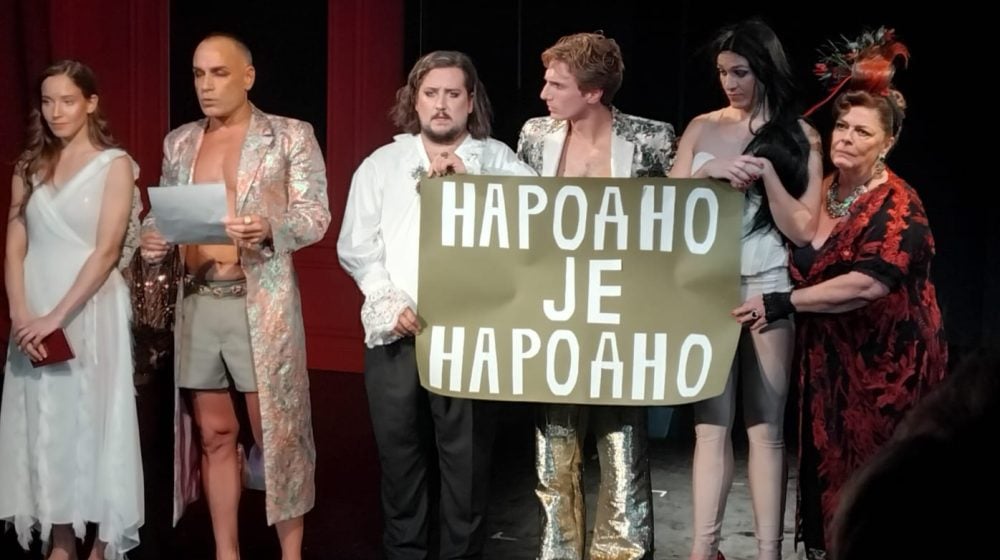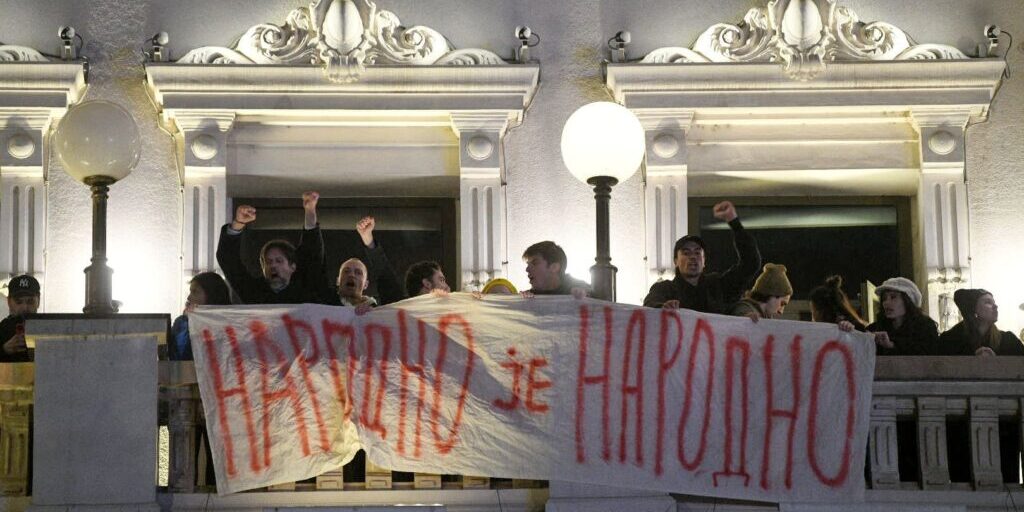The National Theatre in Belgrade has been closed since the start of October, ostensibly for reasons of safety though many see it as a sign of increasing repression and censorship in Serbia.
On October 3rd, the Drama Ensemble of the National Theatre in Belgrade held a strike outside the theatre. Many citizens, artists, and students from the Faculty of Dramatic Arts joined them. The ensemble organized the strike because they were unhappy with the new Management Board and a new Code of Work Discipline, which they believed was a form of censorship. This new rule stops theatre employees from sharing their political views in public. That same day, the theatre’s official website announced that “starting from 3rd October for the next three weeks, the scheduled repertoire will not be performed. The management of the National Theatre asks the audience for understanding and patience.” The formal reason given for the closure was “implementation of technical and fire safety measures.” The statement was jointly signed by the Ministry of Culture and the theatre’s management.
At the protest, actor Aleksandar Vučković read a statement from the ensemble. They stated that management and the Board had been aware of the theatre’s safety issues for a long time, and that it was no coincidence that the closure occurred on the same day the new Code took effect. The ensemble argued that if safety was truly the reason, then management and the Ministry had put actors and audiences at risk by starting the season in unsafe conditions. They also said that closing the National Theatre took away employees’ right to work and denied all citizens access to culture, since the theatre belongs to everyone. The statement described the theatre as a public good, not a political tool, and warned that shutting it down for opinions would silence culture’s voice.

JDP: Photo: Radmila-Radosavljevic
The culture of censorship at the National Theatre is also reflected in the denial of the right to work. On her Facebook profile, Tatjana Mandić Rigonat, a director employed by the National Theatre, revealed that she had been informed she would not be allowed to direct there next year either. Her last production at her home theatre was staged in 2023.
The Drama Ensemble of the National Theatre has issued several demands: the immediate withdrawal of the new Code of Work Discipline; the dismissal of the Management Board led by Dragoslav Bokan and a review of his public statements regarding the reputation of theatre employees; and that the Government of the Republic of Serbia examine the actions of the Minister of Culture. Unions representing ballet dancers, musicians, and actors of the National Theatre have called for another public gathering at Republic Square, under the slogan The National Theater Belongs to the People. The Drama Ensemble will continue to perform part of its repertoire at various venues across Belgrade, including the Belgrade Drama Theatre, Madlenianum, Yugoslav Drama Theatre, Zvezdara Theatre, and Atelje 212, from October 16 to 22.
Many Serbian actors have shown their support for students since the beginning of the protests, by displaying their student IDs, painting their hands red, or holding banners at the end of performances. Theatre artists across Serbia are now showing solidarity with the National Theatre by raising banners The National Theater Belongs to the People.
Main photos: Filip Kraincanic
Divna Stojanov is a dramaturg and playwright. She writes mainly for children and young people.








